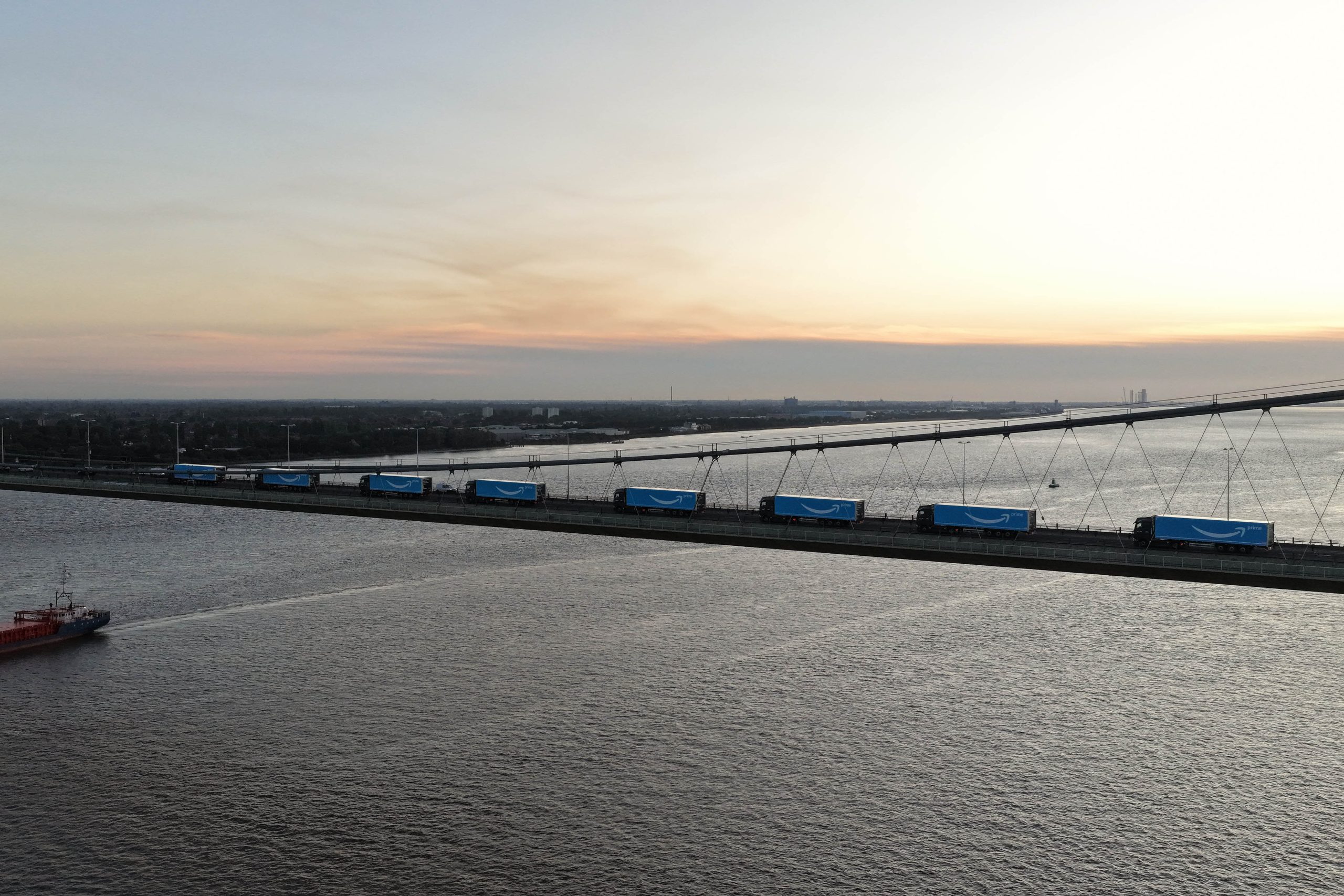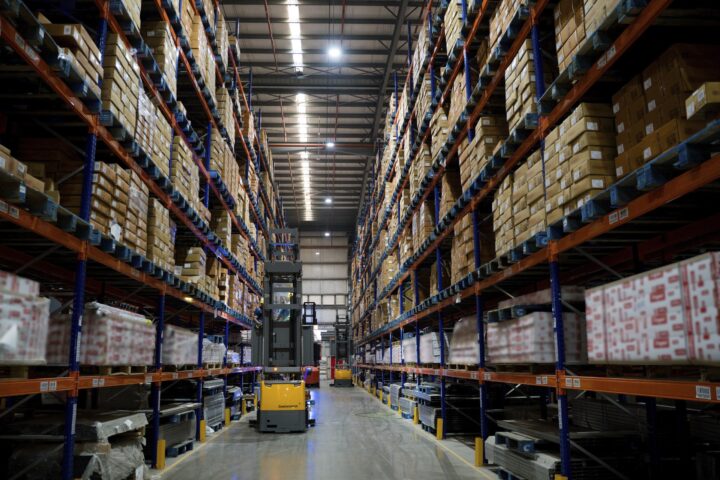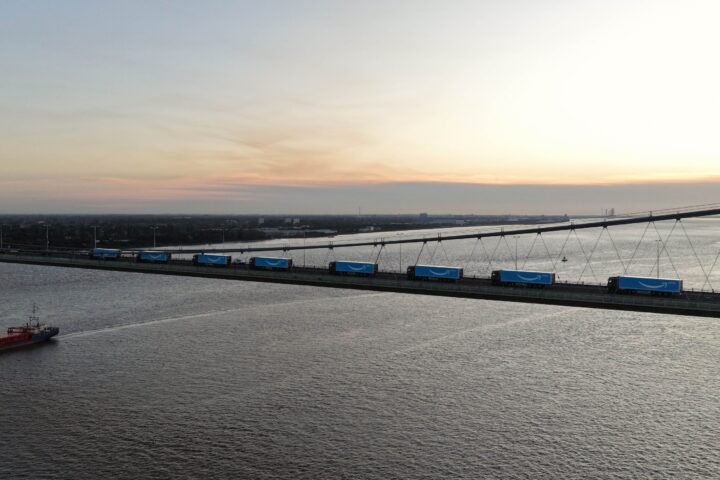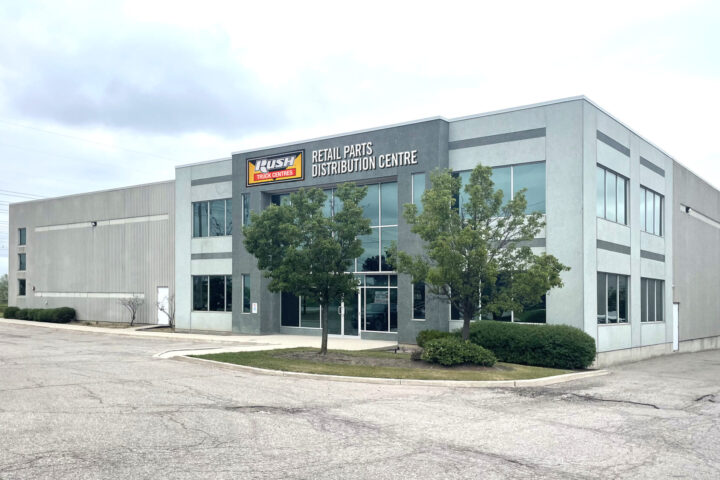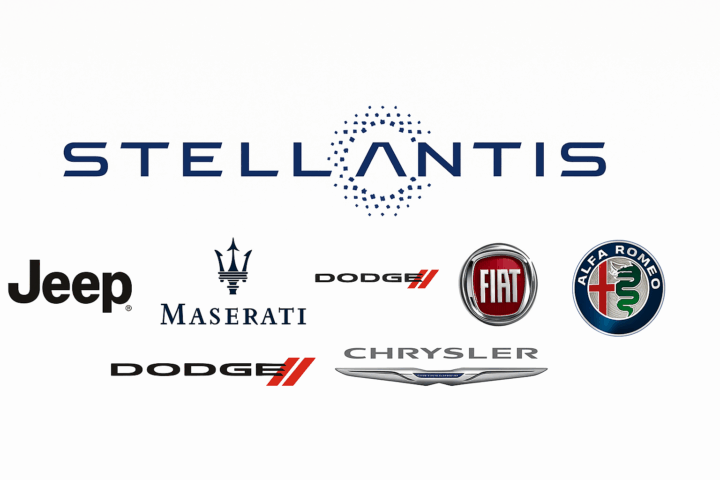The first of the UK’s largest-ever order of electric heavy-goods vehicles (eHGVs) joined Amazon’s transportation network today, crossing the Humber Bridge to deliver packages to Amazon customers nationwide. Once fully deployed, the UK will be home to 160 eHGVs, the largest number of electric trucks in Amazon’s global transportation network. The trucks, transporting products between Amazon logistics hubs across the UK, will travel the annual equivalent of more than 450 trips around the Earth on UK roads once fully operational, carrying more than 300 million products.
This winter, Amazon is making two further updates to bring more products to customers’ doors with zero exhaust emissions: adding 800 new electric vans across the UK and extending pedestrian deliveries to London’s Borough of Camden. These walking couriers, along with the electric vans, help Amazon reduce carbon emissions and alleviate traffic congestion.

“The first vehicles from our record-breaking eHGV order are now on Britain’s roads, transporting products between our hubs. This marks a major milestone in our journey to decarbonise our UK transportation network,” said Nicola Fyfe, EU VP of Amazon Logistics. “These trucks, alongside more electric vans and on-foot deliveries, are a win for our customers, the environment, and our business. The challenge to scaling this approach across the logistics industry, however, is charging infrastructure. We’ve invested in our own facilities but need continued industry and government collaboration to develop the national network required for widespread electric vehicle adoption.”
From Warehouse to Delivery Station
The 40-tonne electric trucks, operated by Amazon’s carrier partners, are part of a record-breaking order of new electric Mercedes-Benz Truck eActros 600s made earlier this year, with a small number part-funded through Amazon’s participation in the UK Government’s Zero Emission HGV and Infrastructure Demonstrator programme, coordinated in partnership with Innovate UK. With a range of over 310 miles (500 km) when fully charged, the Mercedes-Benz trucks can transport up to a 22 metric tonne load per journey between Amazon’s fulfilment centres, sort centres and delivery stations. To support this electric fleet, Amazon has installed fast charging points at its UK sites, with 360kW chargers that can charge the 40-tonne Mercedes-Benz trucks from 20 to 80 per cent battery capacity in just over an hour.
Logistics Business will be reporting from the Amazon Business Reshape conference in Seattle next week.
“The eActros 600 was designed for forward-thinking companies like Amazon – businesses taking real action to make logistics more sustainable, said Heiko Selzam, Managing Director of Daimler Truck UK Limited. “Seeing these trucks now on the road, delivering to Amazon customers, marks an exciting step toward the decarbonisation of road freight and the future of long-haul transport.”
Over 800 new Mercedes-Benz eSprinter vans arriving in the coming months will be deployed for Amazon deliveries. These vans feature improved safety elements, ergonomic designs for drivers, and practical delivery enhancements including custom shelving and sliding bulkhead doors for more efficient package handling.

In London, Amazon is expanding on-foot delivery services, where delivery associates have already delivered more than one million packages to customers’ doors in 2025, reducing traffic congestion and improving air quality. Building on successful pilots in Hackney, Westminster and Islington, Amazon has now also launched operations in Camden, with strategically parked vans acting as mobile distribution points. Teams of delivery associates collect packages from these hubs, to deliver on foot through nearby neighbourhoods.
“One of our commitments in the Freight and Servicing Action Plan was to reduce van emissions from deliveries and servicing trips,” said Councillor Adam Harrison, Cabinet Member for Planning and a Sustainable Camden. “To that end, we are partnering with Amazon to support a trial of walking deliveries from a private industrial site in Camden. We hope that this trial will help reduce van miles and improve local air quality. We will monitor the impacts closely and use the findings to shape future freight policy.”

